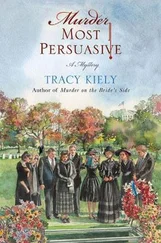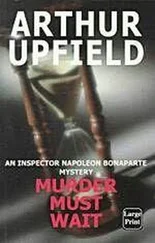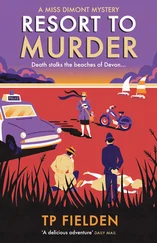Still embarrassed, the Inspector rose to his feet. “I’m going to have a look.” he said.
“At Madame Fayet’s?”
“There and in the Rue Vasco de Gama. If you get any news, let me know, will you?”
“You won’t find any telephone there, but I can get a message to you through the Javel police station.”
The Inspector’s footsteps had hardly died away before the telephone bell rang. No lamp had lit up on the wall. This was an outside call, coming from the Gare d’Austerlitz.
“Lecœur? Station police speaking. We’ve got him.”
“Who?”
“The man whose description was circulated. Lecœur. Same as you. Olivier Lecœur. No doubt about it, I’ve seen his identity card.”
“Hold on, will you?”
Lecœur dashed out of the room and down the stairs just in time to catch the Inspector as he was getting into one of the cars belonging to the Préfecture.
“Inspector! The Gare d’Austerlitz is on the phone. They’ve found my brother.”
Saillard was a stout man and he went up the stairs puffing and blowing. He took the receiver himself.
“Hallo! Yes. Where was he? What was he doing? What? No, there’s no point in your questioning him now. You’re sure he didn’t know? Right. Go on looking out. It’s quite possible. As for him, send him here straightaway. At the Préfecture, yes.”
He hesitated for a second and glanced at Lecœur before saying finally, “Yes. Send someone with him. We can’t take any risks.”
The Inspector filled his pipe and lit it before explaining, and when he spoke he looked at nobody in particular.
“He was picked up after he’d been wandering about the station for over an hour. He seemed very jumpy. Said he was waiting there to meet his son. from whom he’d received a message.”
“Did they tell him about the murder?”
“Yes. He appeared to be staggered by the news and terrified. I asked them to bring him along.” Rather diffidently he added: “I asked them to bring him here. Considering your relationship, I didn’t want you to think—”
Lecœur had been in that room since eleven o’clock the night before. It was rather like his early years when he spent his days in his mother’s kitchen. Around him was an unchanging world. There were the little lamps, of course, that kept going on and off, but that’s what they always did. They were part and parcel of the immutability of the place. Time flowed by without anyone noticing it.
Yet, outside, Paris was celebrating Christmas. Thousands of people had been to Midnight Mass, thousands more had spent the night roistering, and those who hadn’t known where to draw the line had sobered down in the police station and were now being called upon to explain things they couldn’t remember doing.
What had his brother Olivier been doing all through the night? An old woman had been found dead. A boy had started before dawn on a breathless race through the streets, breaking the glass of the telephone pillars as he passed them, having wrapped his handkerchief round his fist.
And what was Olivier waiting for at the Gare d’Austerlitz. sometimes in the overheated waiting rooms, sometimes on the windswept platforms, too nervous to settle down in any one place for long?
Less than ten minutes elapsed, just time enough for Godin, whose nose really was running, to make himself another glass of hot grog.
“Can I offer you one, Monsieur le Commissaire?”
“No, thanks.”
Looking more embarrassed than ever, Saillard leaned over towards Lecœur to say in an undertone, “Would you like us to question him in another room?”
No. Lecœur wasn’t going to leave his post for anything. He wanted to stay there, with his little lamps and his switchboard. Was it that he was thinking more of the boy than of his brother?
Olivier came in with a detective on either side, but they had spared him the handcuffs. He looked dreadful, like a bad photograph faded with age. At once he turned to Andre. “Where’s Francois?”
“We don’t know. We’re hunting for him.”
“Where?”
Andre Lecœur pointed to his plan of Paris and his switchboard of a thousand lines. “Everywhere.”
The two detectives had already been sent away.
“Sit down,” said the Inspector. “I believe you’ve been told of Madame Fayet’s death.”
Olivier didn’t wear spectacles, but he had the same pale and rather fugitive eyes as his brother had when he took his glasses off. He glanced at the Inspector, by whom he didn’t seem the least overawed, then turned back to Andre. “He left a note for me,” he said, delving into one of the pockets of his grubby mackintosh. “Here. See if you can understand.”
He held out a bit of paper torn out of a schoolboy’s exercise book. The writing wasn’t any too good. It didn’t look as though Francois was the best of pupils. He had used an indelible pencil, wetting the end in his mouth, so that his lips were very likely stained with it.
“Uncle Gedeon arrives this morning Gare d’Austerlitz. Come as soon as you can and meet us there. Love. Bib.”
Without a word, Andre Lecœur passed it on to the Inspector, who turned it over and over with his thick fingers. “What’s Bib stand for?”
“It’s his nickname. A baby name. I never use it when other people are about. It comes from biberon . When I used to give him his bottle—” He spoke in a toneless voice. He seemed to be in a fog and was probably only dimly conscious of where he was.
“Who’s Uncle Gedeon?”
“There isn’t any such person.”
Did he realize he was talking to the head of the Brigade des Homicides, who was at the moment investigating a murder?
It was his brother who came to the rescue, explaining. “As a matter of fact, we had an Uncle Gedeon but he’s been dead for some years. He was one of my mother’s brothers who emigrated to America as a young man.”
Olivier looked at his brother as much as to say: What’s the point of going into that?
“We got into the habit, in the family, of speaking—jocularly, of course— of our rich American uncle and of the fortune he’d leave us one day.”
“Was he rich?”
“We didn’t know. We never heard from him except for a postcard once a year, signed Gedeon. Wishing us a happy New Year.”
“He died?”
“When Francois was four.”
“Really. Andre, do you think it’s any use—”
“Let me go on. The Inspector wants to know everything. My brother carried on the family tradition, talking to his son about our Uncle Gedeon, who had become by now quite a legendary figure. He provided a theme for bedtime stories, and all sorts of adventures were attributed to him. Naturally he was fabulously rich, and when one day he came back to France—”
“I understand. He died out there?”
“In a hospital in Cleveland. It was then we found out he had been really a porter in a restaurant. It would have been too cruel to tell the boy that, so the legend went on.”
“Did he believe in it?”
It was Olivier who answered. “My brother thought he didn’t, that he’d guessed the truth but wasn’t going to spoil the game. But I always maintained the contrary and I’m still practically certain he took it all in. He was like that. Long after his schoolfellows had stopped believing in Father Christmas, he still went on.”
Talking about his son brought him back to life, transfigured him.
“But as for this note he left, I don’t know what to make of it. I asked the concierge if a telegram had come. For a moment I thought Andre might have played us a practical joke, but I soon dismissed the idea. It isn’t much of a joke to get a boy dashing off to a station on a freezing night. Naturally I dashed off to the Gare d’Austerlitz as fast as I could. There I hunted high and low, then wandered about, waiting anxiously for him to turn up. Andre, you’re sure he hasn’t been—”
Читать дальше












